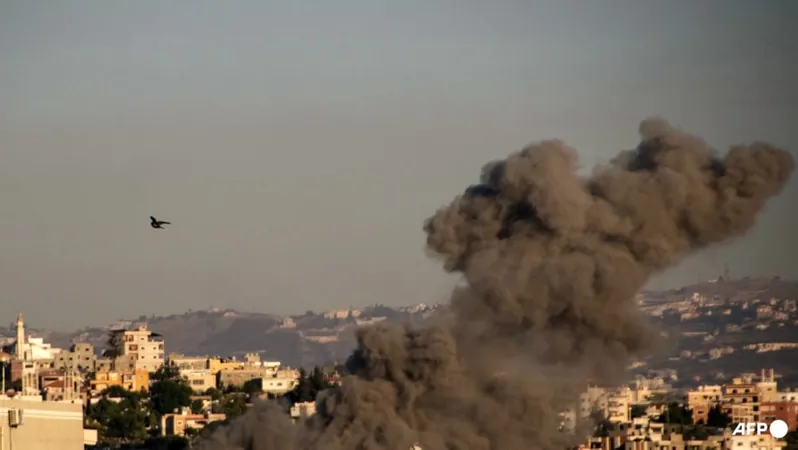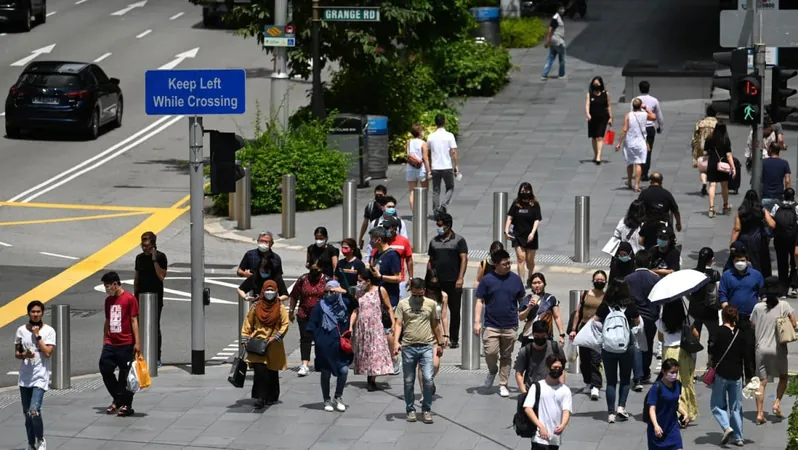
Escalating Tensions: Israel and Hezbollah Clash as Peace Efforts Falter
2024-09-27
BEIRUT
In a rapidly deteriorating situation, Israel and Hezbollah exchanged fire on Friday, September 27, following a failed attempt by the United States and allied nations to broker a ceasefire. This latest escalation has resulted in more than 700 casualties in Lebanon within just the past week.
The rejection of a proposed 21-day truce by key Israeli officials has shifted the spotlight onto Israeli Prime Minister Benjamin Netanyahu, who is scheduled to address the UN General Assembly shortly. With hostilities reigniting after the Oct 7 assault by Hamas on Israel, the conflict now extends to the northern front with Hezbollah, which has increasingly aligned itself with the Palestinian group.
In recent days, Israeli airstrikes have intensified across Lebanon, targeting Hezbollah strongholds. Reports indicate that these bombardments have displaced approximately 118,000 individuals, pushing the humanitarian crisis further out of control. The Lebanese National News Agency reported a tragic incident where airstrikes resulted in the death of an entire family of nine in southern Lebanon.
In response, Hezbollah retaliated by launching rockets into the Israeli city of Tiberias, denouncing the Israeli strikes on Lebanese communities as "savage." The toll from the ongoing violence in Lebanon has surpassed 1,500 individuals, starkly outpacing the casualties from the 2006 conflict between Israel and Hezbollah.
Lebanese businessman Anis Rubeiz, reflecting the sentiments of many, expressed despair: “Everything is collapsing around us. People are mentally exhausted... I don't see hope on the horizon."
Despite international efforts for mediation, including a recent proposal from President Joe Biden and French President Emmanuel Macron, Israel's Foreign Minister Israel Katz firmly rejected any suggestion of a ceasefire, committing to continue military operations against Hezbollah "until victory." The White House, visibly frustrated, indicated that significant diplomatic efforts had been invested in proposing the truce, which Katz dismissed.
As Netanyahu prepares for his address at the UN, he remains unyielding in his position to maintain pressure on Hezbollah until Israeli citizens displaced by the ongoing conflict can safely return home. "We are striking Hezbollah with blows it never imagined," he asserted, reinforcing his commitment to an aggressive military strategy.
The situation has further ramifications, as Hezbollah has not publicly addressed the ceasefire proposal, leaving the crisis delicate and unresolved. Meanwhile, significant Israeli military activities included successful intercepts of missile threats believed to be linked to Iranian-backed groups in the region, signaling a broader confrontation that could escalate.
The tensions in Lebanon raise alarms of potential wider conflict throughout the Middle East, as Iran-backed factions pledge to continue their operations against Israel. Recent missile fire from Yemen has intensified the perception of an expanding conflict, compelling analysts to scrutinize Iran's role with its allies in the region.
As the conflict unfolds, key international diplomats are urging a resolution to the ongoing war in Gaza, emphasizing its critical role in stabilizing Lebanon. Negotiations have made little progress, with the humanitarian situation within Gaza spiraling downward. Since the Hamas assault, Israel's military response has resulted in staggering fatalities, predominantly among civilians, indicating a dire humanitarian crisis on both sides of the border.
With no definitive end in sight and increasing threats of regional escalation, the need for diplomatic solutions has never been more urgent. As world leaders gather at the UN, the call for peace hangs in the balance, with the potential for prolonged conflict looming heavily over the region.



 Brasil (PT)
Brasil (PT)
 Canada (EN)
Canada (EN)
 Chile (ES)
Chile (ES)
 España (ES)
España (ES)
 France (FR)
France (FR)
 Hong Kong (EN)
Hong Kong (EN)
 Italia (IT)
Italia (IT)
 日本 (JA)
日本 (JA)
 Magyarország (HU)
Magyarország (HU)
 Norge (NO)
Norge (NO)
 Polska (PL)
Polska (PL)
 Schweiz (DE)
Schweiz (DE)
 Singapore (EN)
Singapore (EN)
 Sverige (SV)
Sverige (SV)
 Suomi (FI)
Suomi (FI)
 Türkiye (TR)
Türkiye (TR)